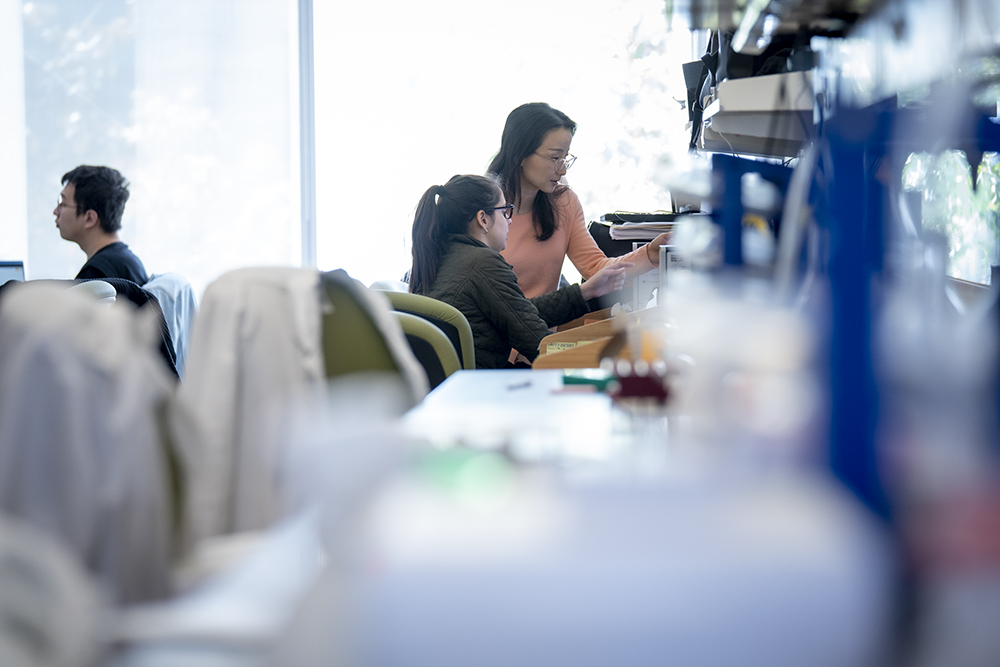
When patients receive bone marrow transplants, they are infused with complex admixtures of many different cell types with the power to regenerate their blood and immune systems. In a new study in Experimental & Molecular Medicine, scientists from the USC Stem Cell laboratory of Rong Lu share new discoveries about the influence of multipotent progenitor cells (MPPs) that are co-transplanted along with stem cells during bone marrow transplants.
“This is the first study to investigate the influence of MPPs, which we found stimulated stem cells to produce more T cells,” said Lu, the study’s corresponding author and an associate professor of stem cell biology, biomedical engineering, medicine, and gerontology at USC. “Improving T cell production in bone marrow transplantation can help prevent infections, a major complication that can be fatal for patients undergoing this treatment.”
In the study, first author Zheng Wang and his colleagues used genetic labels to “barcode” individual stem cells in bone marrow transplants in mice. The bone marrow transplants included MPPs along with blood-forming or “hematopoietic” stem cells (HSCs)—similar to what patients receive when being given bone marrow transplants to treat leukemia or other life-threatening conditions.
The scientists then tracked the blood production of the barcoded HSCs over a short-term period of 2.5 months and a long-term period of 6.5 months. When co-transplanted with MPPs, the HSCs produced many different cell types in the short-term, but ultimately increased their production of T cells in the long-term.
“The more we learn about these cellular interactions, the more we can inform clinicians about how to optimize bone marrow transplants for patients,” said Lu.
Additional co-authors include Du Jiang, Mary Vergel-Rodriguez, and Anna Nogalska from the Lu Lab.
The research was funded by the Chongqing Natural Science Foundation (cstc2019jcyj-msxmX0421), National Institutes of Health (R00-HL113104, R01HL135292, R01HL138225, and R35HL150826). Rong Lu is a scholar of the Leukemia & Lymphoma Society (LLS-1370-20) and was a Richard N. Merkin Assistant Professor.
